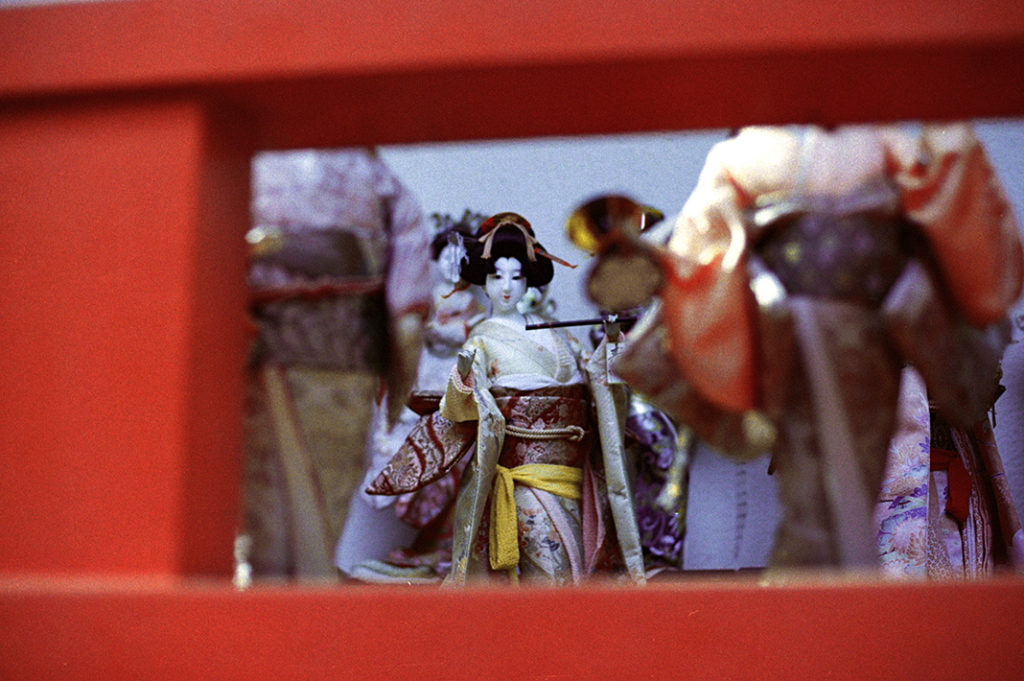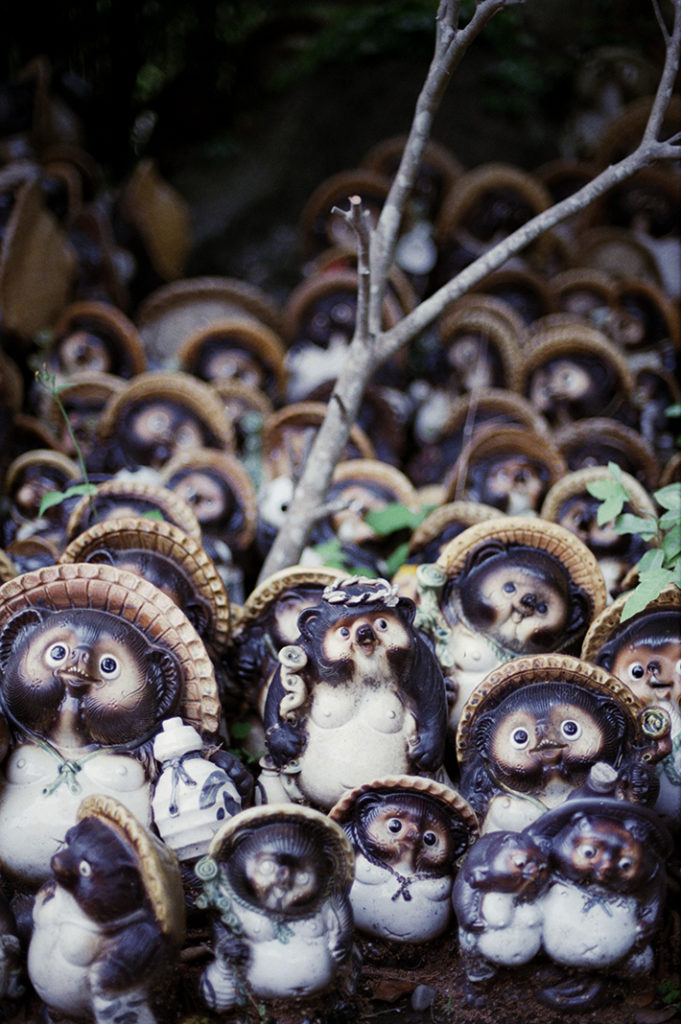
Awashima Shrine: the Valley of the Dolls.
Japan is indisputably a land of wonders, marvels and peculiarities. New experiences present themselves on all levels of magnitude, from overwhelming (Koya-san, anyone?) to subtly memorable.
Kada port’s Awashima Shrine [淡島神社] falls into the latter category: peculiar, mysterious and just a little unsettling.

The shrine is home to thousands upon thousands of dolls. In particular, the majority are traditional Japanese ‘ningyō’: humanoid dolls depicting children or women.
In Japan, people commonly use these types of dolls for the annual ‘Hina Matsuri’ (girls’ day, or dolls’ day festivals). Others depict Tenguu (mountain demons), Daruma or small garden statuettes, such as the familiar ‘tanuki’ (Japanese racoon).

So… a shrine filled with unwanted dolls?
Most of us will be familiar with the feeling of unease that comes from sharing a space with a lifelike doll. They’re a common staple of horror movies around the world (whether they’re possessed, broken or simply a creepy scene-enhancer).
(You can read the rest of the article at this link. This article was first published by Team JJ on August 26, 2020. Check here for deeper and unique insights into visiting Japan, including wellness, travel, cuisine and more. Find us on Instagram and on Facebook.)







